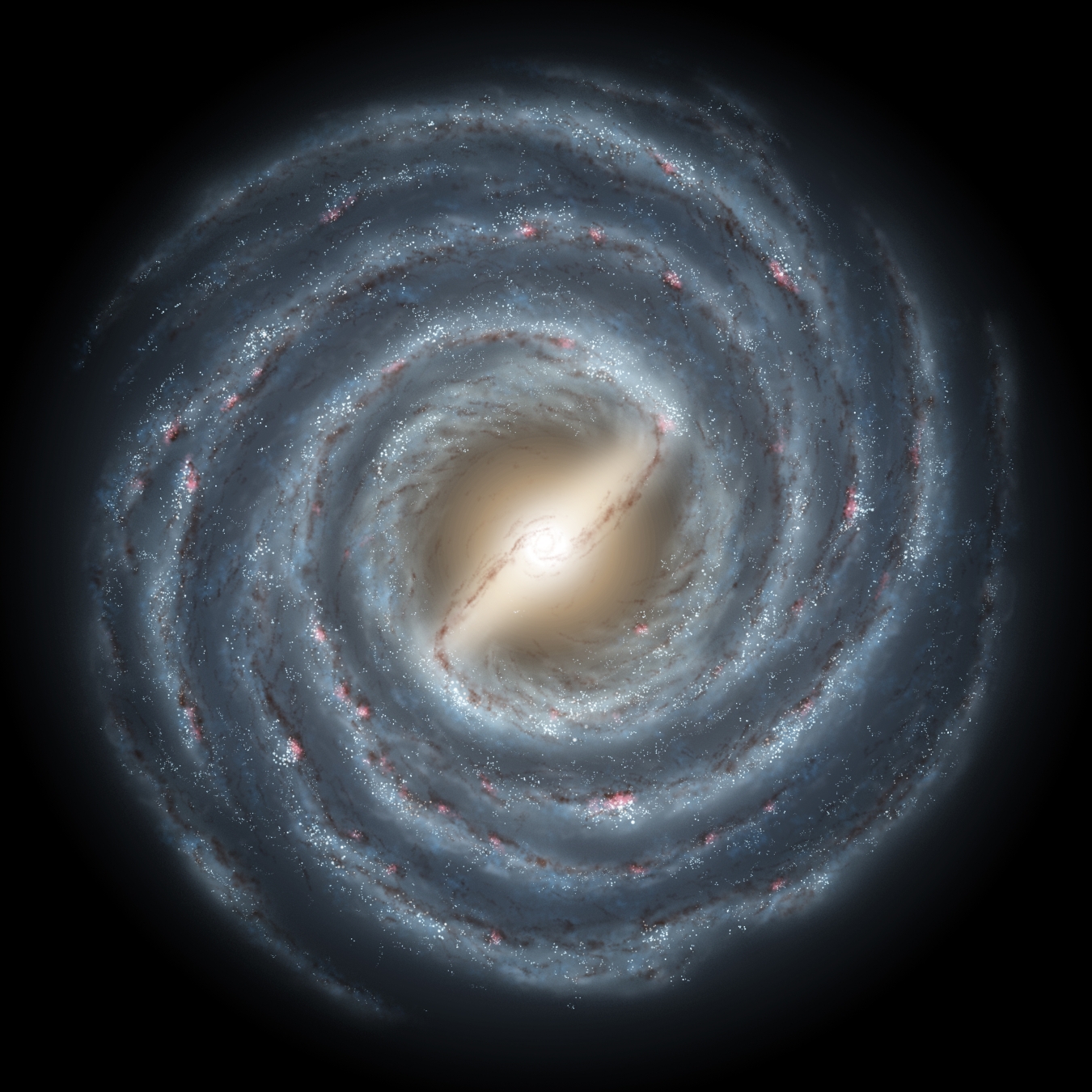 I previously placed the Milky Way's formation at the first of May - a nice confluence with other holiday traditions. But, since the Cosmic Calendar is based on empirical knowledge, I would like to use this post to acknowledge that both of the numbers that feed into the calculation of which day is "Milky Way Day" were problematic, and to consider the implications for our holiday.
I previously placed the Milky Way's formation at the first of May - a nice confluence with other holiday traditions. But, since the Cosmic Calendar is based on empirical knowledge, I would like to use this post to acknowledge that both of the numbers that feed into the calculation of which day is "Milky Way Day" were problematic, and to consider the implications for our holiday.
The first inaccurate number was the age of the universe: my first calculation was based on an age of 15 billion years (a nice round number that I picked up from I-don't-know-where). In fact, best estimates put the Big Bang about 13.7 billion years ago.* That changes the scale of everything (from about 41 million years per calendar day to about 37.5 million).
Second, it is difficult to put a particular date to the origin of the Milky Way. Is it the date when its oldest star formed (possibly about 13.6 billion years ago - the afternoon of January 3rd)? It seems more reasonable to look for the achievement of something like its current disk-like structure - something that Wikipedia tells us occurred somewhere between 10.1 and 6.5 billion years ago. (I don't know if that means it took that long, or if astronomers simply can't pinpoint the time more precisely than that.)
 That gives us a range from April 6 to July 11. Now, I'd be all for a 3-month-long humanist festival celebrating our local stellar metropolis ... but some people might think this impractical.
That gives us a range from April 6 to July 11. Now, I'd be all for a 3-month-long humanist festival celebrating our local stellar metropolis ... but some people might think this impractical.So I'm going to stick with May 1 for the time being. It's well within the range of dates (it corresponds to a cosmic date 9.1 billion years ago). Remember, the whole idea of using the Cosmic Calendar is to raise our awareness of the scale of cosmic history. We don't have to be dead on. (But feel free to celebrate Milky Way Day at any date in the range that suits you. There's nothing sacred about May 1.)

So, happy Milky Way Day!
What will you be doing to commemorate this momentous event? Will you try your hand at a star-formation game? Will you look for spiral shapes in your environment? Or will you just spend some time outside tonight, gazing at that pale band of light across the sky?
* Observant readers will note that I often just reference Wikipedia in my fact-supporting links. I do research beyond Wikipedia, but in an effort to avoid link soup, I limit the number of links I provide. If there is relevant information elsewhere, I will link to it. If Wikipedia seems to be weak on a particular topic, I will look elsewhere. Otherwise, it's a reliable standby.
Image credits:
Opening image of Milky Way by R. Hurt. Obtained via Astronomy Picture of the Day. Believed to be public domain.
Image of Hera nursing Heracles (Greek myth on the formation of the Milky Way) by Jacopo Tintoretto (1518-1594), via this page. Public domain.
Nautilus shell from Wikipedia, copyright user Mgiganteus1, distributed under GNU Free documentation License.
Sunflower from Wikipedia, copyright L. Shyamal, distributed under the CC Attribution Share-alike License 2.5.




Now I'm daydreaming about a three month holiday...
ReplyDelete